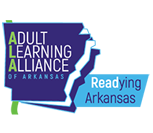As a dedicated tutor working with adult learners, you play a crucial role in helping them acquire essential literacy skills. One of the foundational skills that can significantly impact reading and language development is phonemic awareness. Phonemic awareness refers to the ability to recognize and manipulate the individual sounds, or phonemes, in spoken words. It’s a skill that forms the basis for successful reading and writing. In this blog post, we’ll explore how you can identify if your adult student is struggling with phonemic awareness and offer some practical tips for addressing these challenges.

Signs of Phonemic Awareness Difficulties
Difficulty with Rhyming: Adult learners who struggle with phonemic awareness may have difficulty identifying rhyming words or generating rhymes. If your student finds it challenging to recognize words that sound similar, this could be an early indicator.
Segmentation and Blending Issues: Phonemic awareness involves breaking down words into individual sounds (segmentation) and blending sounds together to form words (blending). If your student has trouble with either of these tasks, it’s a sign of phonemic awareness difficulties.
Limited Sound Discrimination: Adults with phonemic awareness challenges may struggle to differentiate between similar sounds in words. They might confuse sounds like “b” and “p” or “m” and “n.”
Mispronunciations: Frequent mispronunciations of words or substituting one sound for another in spoken language can indicate phonemic awareness difficulties.
Struggles with Spelling: Poor spelling skills often stem from phonemic awareness issues, as students may have trouble connecting the sounds they hear to the letters they need to write.

Addressing Phonemic Awareness Difficulties
Assessment: Begin by assessing your student’s phonemic awareness skills. There are many standardized tests and informal assessments available to gauge their abilities accurately.
One-on-One Practice: Tailor your tutoring sessions to focus on phonemic awareness activities, such as rhyming games, sound segmentation, and blending exercises. Keep these activities engaging and interactive.
Phonics Instruction: Incorporate systematic phonics instruction to help students connect phonemes with their corresponding letters.
Reading Aloud: Encourage your student to read aloud regularly. This helps them practice applying their phonemic awareness skills in real reading situations.
Feedback and Encouragement: Provide constructive feedback and praise for progress. Building phonemic awareness takes time, so patience and encouragement are essential.
Use Visual Aids: Utilize visual aids like flashcards or charts to help students visualize and connect sounds to letters.
Word Families: Explore word families (e.g., -at, -an, -it) to help students see and hear patterns in words, which can strengthen phonemic awareness.
Identifying phonemic awareness difficulties in your adult learners is the first step toward helping them build this essential skill. With patience, targeted instruction, and a variety of engaging activities, you can support your students in developing their phonemic awareness. Remember that progress may be gradual, but your guidance and dedication can make a significant difference in their literacy journey. By addressing these challenges early and effectively, you can empower your adult learners to become more confident and proficient readers and writers.
You can also learn more ideas for improving your student’s phonemic awareness in our video 7 Activities for Improving Phonemic Awareness.







